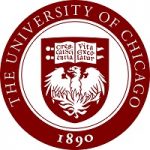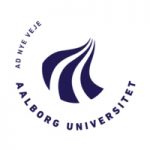项目介绍
Graduate training in anthropology in governed by requirements set both by the Department and the University. However, the most critical mediating role in the implementation of these requirements and in the achievement of the goals of graduate training is the relationship of each student to their faculty advisors.
Program Outline
The graduate program can be divided into five overall phases. The first phase is the initial year of study and involves introductory work. During the first year, all graduate students will be introduced to the Development of Social and Cultural Theory and to the scholarly interests of the faculty of the Department. They will also take courses in particular specialized areas of ethnography, archaeology, and theory, with a view to defining or refining their own research interests and preparation for their dissertation projects. Depending on their particular interests and in consultation with their first-year advisor, they may also take relevant courses in other departments, or special language training.
The second phase of training is a continuation of the first, but is directed toward acquiring a deeper knowledge of the special area and theoretical topics on which a student’s research will be focused, as well as a broader anthropological understanding in preparation for the PhD Qualifying/Oral Examination and in completing a Master’s paper.
At the end of the second phase students are expected to complete their Master’s Degree. The department requires a Master’s paper/degree as a prerequisite for admission to candidacy for the PhD. For students entering without a previous MA, the degree will be awarded upon completion of the Phase I (First-year) course requirements (9 courses) plus the acceptance of a written research paper. Work on this paper may begin during the summer following the student’s first year, but it will normally be completed under the supervision of a faculty member with whom the student registers for an M.A.
Preparation for the Qualifying Examination. Along with preparation of the MA paper, students begin preparing, in consultation with their advisory committee, a reading list covering the special theoretical and ethnographic areas that will be the foci of the Qualifying Examination. Ideally, the Examination takes place some time in the 3rd year.
The third phase in a student’s graduate career may be considered a pre-research training period during which he/she will be putting the finishing touches on a dissertation proposal and grant applications, and will be developing the necessary advanced research skills. Continued study in a variety of areas in this and other departments may further extend the student’s knowledge and effectiveness as an anthropologist.
Proposal Preparation Seminar. Anthropology 52200: Proposal Preparation is required of all students preparing for field research. Completion of the MA is a prerequisite for this course. Ideally, students should also have finished the Qualifying Exam, or at the very least, have their reading lists assembled and an exam date scheduled so that they have a firm grasp of the relevant bodies of literature necessary to develop the research question for their project. This course is typically taken in the third (or possibly the fourth) year.
The fourth phase is dissertation research. For most anthropology dissertations, long term fieldwork is expected. But dissertation research may also involve research in a library, archive, or museum.
Requirements for Dissertation Research. Although preparatory work on the dissertation (preliminary field trips, language study, exploration of archival sources, etc.) may have been undertaken earlier, Phase 4 research will not formally begin until the student has been admitted to candidacy for the PhD degree.
Phase five is dissertation write-up. The production and interpretation of a body of research material is a continuous process, never so clearly marked as the traditional notions of “field research” and “write up” suggest. Even so, the actual writing of the dissertation is a distinct phase of the training process, in which analysis and presentation of the research material becomes the focus of each student’s attention.
Residence in Chicago. Students are strongly urged to spend the write-up period in Chicago, unless otherwise agreed by your advisory committee. With each annual cohort dispersing in the research phase, returning students represent an important sub-community within the Department. Students reporting on their research can reinvigorate intellectual discourse in Haskell Hall. Reciprocally, their interaction with each other, as well as with the faculty and other students, can greatly facilitate and enrich the writing process.
The Advisory Process
First year advisors are appointed at the beginning of the year in consultation with the interviewing committee. The second-year advisor is selected by the student and serves as the student’s mentor until such time as the student selects a formal committee chair. Each advanced student is advised by a committee that consists minimally of three members, at least two of whom, including the chair, must be active, current faculty of the Department. It is the student’s responsibility to seek out members for the committee and to secure their written consent. Committee Forms (obtainable in Haskell 119) and any correspondence regarding constitution of the advisory committee should be deposited with the Administrator for Student Affairs. If appropriate, additional committee members may serve as readers of proposals and theses.
The advisory committee chair (or first- or second-year advisor, or an agreed upon substitute) will advise you on your course registration, sign Plan of Study Forms, and keep a continuous record. Any changes in advisory committees (whether initiated by the student or by a faculty member) must be recorded by submission of additional Committee Forms available in Haskell 119. Changes of committee after admission to candidacy are generally undesirable, and will be permitted only under exceptional circumstances.
Advising Beyond the Second Year
Although the role of the advisory committee (or first- or second-year advisor) is central, a role may also be played by the Director of Graduate Studies, by other faculty, or by the Department Chair, who in addition to having final approval on various matters, is also directly available for consultation. Aside from the formal petitions and reviews variously specified in the Guidelines, issues may occasionally arise which students or advisors may wish to refer to the Committee on Graduate Affairs or the Chair. In any case where some special interpretation of Departmental or University guidelines may be required, it is a good idea to raise the matter in writing.
Grievances and Individual Support
Although we assume that most issues relating to your graduate education can and should be addressed through regular departmental channels, beginning normally with your advisor, we recognize the possibility that there may be certain kinds of problems, either of a personal or interpersonal nature, which can best be handled through some other means. If such problems or difficulties arise, you should feel free to speak with the Department Chair, members of your advisory committee, members of the Student-Faculty Liaison Committee, the Graduate Student Mentor, or anyone else in the departmental community in whom you have confidence. Outside the Department there are also both formal and informal channels through which to raise issues of this sort, including the Student Ombudsperson; the Office of the Dean of Students in the Social Science Division; and the University Equal Opportunity Programs, including Title IX and Sexual Misconduct; Discrimination and Discriminatory Harassment; and Accessibility programs.
Foreign Language
Prior to admission to doctoral candidacy (i.e. before you begin field research), all doctoral students must meet the Departmental requirement of demonstrating competence in a language in which there is a substantial and relevant scholarly literature. Although you are encouraged to satisfy this requirement at an early point in your work by passing an examination in one of the customarily specified languages (e.g., French, German, Spanish, Russian), your advisory committee may require additional language training, depending on your research interests. To satisfy the Departmental Language requirement, you must receive a “High Pass” P*/P+ on a university administered language exam. (A grade of “Pass”/“P” will not suffice.)
Formal Method
With similar concerns in mind, the advisory committees may in certain cases decide that a student’s career requires a demonstrated competence in some formal research method.
Course Completion and Quality Grades
Your academic record, including course grades, are an important basis for recommendations written to prospective funding agencies and employers. While arrangements to take Ps (“passing”) and Rs (“registered”) are sometimes appropriate, a record filled with these grades is not a useful indicator of the quality of work. We therefore encourage (and in the first year require) students to take courses for quality grades (A or B).
More specifically, the program requires a total of 18 courses to be taken for quality grades prior to admission to candidacy: 9 in the first year (8 for grades of A or B and Intro to Chicago Anthropology which is taken for a P), and another 9 prior to the Proposal Hearing. Of the 18 courses, Intro to Chicago Anthropology and Proposal Prep are taken Pass/Fail. As a rule of thumb there should be no more than 2 more of the 18 courses taken for “P.” The Reading Course used for the MA paper should receive a grade of A or B subsequent to completion of the paper.
The distribution of Quality Grades (for A or B) should be as follows:
- 8 courses in the first year
- MA Reading/Research course
- At least 5 more courses taken prior to admission to candidacy
This totals 14 courses taken for quality grades; 10 of those must be in Anthropology (ANTH)
For grades of “P”:
- Intro to Chicago Anthropology
- Proposal Prep
- No more than two others of the 18
It is advisable that, with the exception of the MA Reading/Research course, most of the other 12+ courses taken for grades of A or B be regular, substantive courses, not Reading/Research courses. Basic courses in French, Spanish or German taken for purposes of preparing for the language examination may not be used to meet the 18-course requirement. Once the 18-course requirement is met, students still in Research Residence must continue to register for at least one course per quarter for a grade of P, A/B, or (least preferably) R.
Required Courses
- The following are the only courses specifically required in the Anthropology doctoral program:
- Development of Social/Cultural Theory 1 & 2 (two-quarter double-course) (required of all students)
- Proposal Preparation (required of all students)
- Modes of Inquiry-1 and 2 (“1” required of Sociocultural/Linguistic anthropology students; “2” strongly recommended)
- Archaeological Theory & Method (double-course) (required of Archaeology students; part I required, parts 2 strongly recommended)
- Archaeological Data Sets or another approved statistics course (required of Archaeology students)
Incompletes
Prompt completion of course work is indispensable if the instructor and Department are to be able to adequately evaluate student performance. Students should be aware that fellowship decisions, both within and outside the University, take a student’s ability to complete courses into account. The Office of the Dean of Students reserves the right to withhold stipend checks from students with excessive numbers of incomplete.
Specific regulations regarding incompletes:
- Incomplete grades are NOT permitted in required courses (Development of Social/Cultural Theory; Anthropological Methods; Archaeological Theory and Method; Statistics/Archaeological Data Sets; Proposal Preparation; and Archaeological Research Design)
- In all other anthropology courses, you have one-year maximum to complete incomplete course requirements. Students with overdue incompletes will not be allowed to register until the course requirements are completed. First year students should make every effort to clear all incompletes prior to registering for the second year.
Annual Progress Reports
Early in the spring quarter of each year, every student in the Department is asked to submit two academic progress reports. One is required by the Dean of Students; the other is intradepartmental and provides information for our Annual Review. In preparing these reports, you are encouraged to check that your departmental records are up to date.
Annual Review
Every year, late in the spring quarter, the faculty reviews the progress of each student in the Department. We take into account the results of all examinations, reports on hearings, coursework, writing projects (including Master’s papers), and detailed faculty comment on all of these. It is in your interest to see that copies of papers and reprints of any publications are deposited in the departmental files. At the spring review, the faculty make recommendations concerning continuance in the program and University financial aid. A statement of the faculty evaluation is sent over the summer to each student in the program, with a copy placed in the departmental file. You are encouraged to discuss these with your advisor, or with the Department Chair, if there are issues that appear to need further clarification. Although the Department is required to make preliminary recommendations about continuation of fellowships early in the spring quarter, these recommendations are always contingent upon the outcome of the subsequent Annual Review.
联系方式
电话: 773.702.1234相关项目推荐
KD博士实时收录全球顶尖院校的博士项目,总有一个项目等着你!






